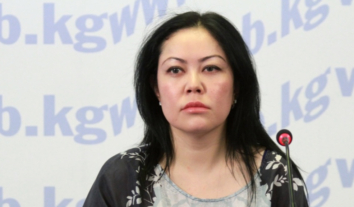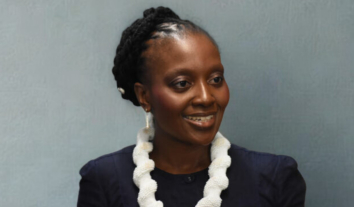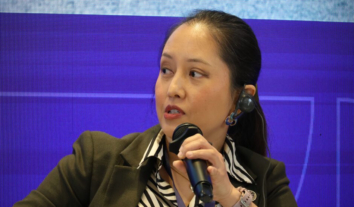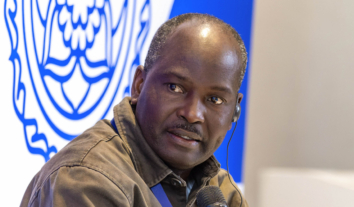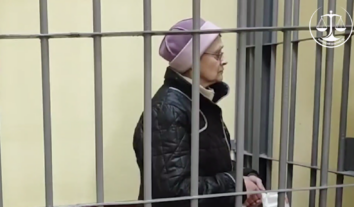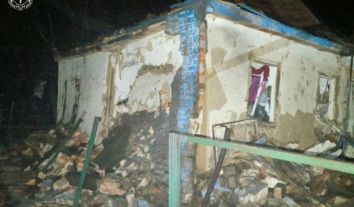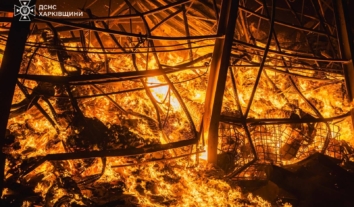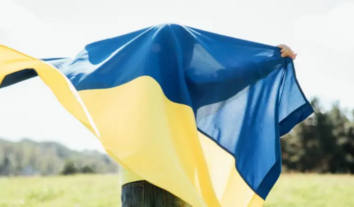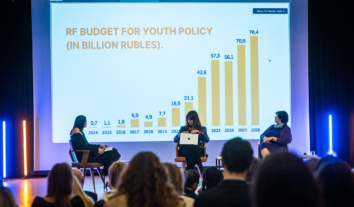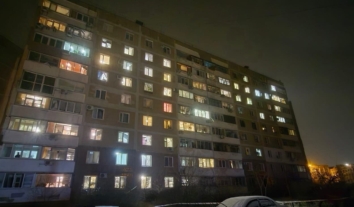Darling, March 8th is Your Day… If You Live until Then
Normal
0
false
false
false
RU
X-NONE
X-NONE
/* Style Definitions */
table.MsoNormalTable
{mso-style-name:”Обычная таблица”;
mso-tstyle-rowband-size:0;
mso-tstyle-colband-size:0;
mso-style-noshow:yes;
mso-style-priority:99;
mso-style-qformat:yes;
mso-style-parent:””;
mso-padding-alt:0cm 5.4pt 0cm 5.4pt;
mso-para-margin-top:0cm;
mso-para-margin-right:0cm;
mso-para-margin-bottom:10.0pt;
mso-para-margin-left:0cm;
line-height:115%;
mso-pagination:widow-orphan;
font-size:11.0pt;
font-family:”Calibri”,”sans-serif”;
mso-ascii-font-family:Calibri;
mso-ascii-theme-font:minor-latin;
mso-fareast-font-family:”Times New Roman”;
mso-fareast-theme-font:minor-fareast;
mso-hansi-font-family:Calibri;
mso-hansi-theme-font:minor-latin;}
In the middle of March hysteria, I would like to add a spoonful of tar to the holiday.
Olena Suslova, President of Women’s Information Consultative Center, has recently said: “I’m not looking forward to March 8th, when women will be congratulated with their ‘holiday’. The situation of women’s rights in our country is still grave.”
Un-festive Statistics
Indeed, there is often a lot of hypocrisy in this “holiday,” insipid flowers, cheap perfume, and a sour smile. Only public activists are sounding the alarm about the increasing number of victims of domestic violence.
Am I too contentious? I went on to contact the International Women’s Rights Center “La Strada Ukraine” to get see some fresh statistics.
In 2014, more than 170,000 statements on domestic violence were filed with law enforcement authorities and about 100,000 with social services. That is at least a quarter of a million people, the vast majority of which are women, who are subjected to domestic violence. Those are just the ones who went to authorities about it.
People do not speak about violence in their families. 75% of victims never ask for help. More than 50% continue to live with the aggressor. Most families consider domestic violence normal and acceptable.
At the same time, there is very little information in the media about fighting and preventing domestic violence in Ukraine. In 2012, there less than 1% of publications in the media were on the subject of domestic violence and women’s rights.
Among the large-scale problems are the almost complete lack of shelters and rehabilitation centers for victims of violence, the lack of qualified specialists, and the lack of effective punishments for offenders.
A Global Problem
When speaking about domestic violence, we most often think about physical violence. However, the “bruising” caused by words (psychological abuse) or economic dependence is no less damaging. Experts are increasingly using the term “gender-based violence,” which covers all forms of violence. This includes psychological, physical, and sexual violence, including rape, forced marriage, female genital mutilation, forced abortion or sterilization, stalking, and sexual harassment.
Without reducing everything to just Ukraine, gender-based violence is a worldwide problem. There are issues of acid attacks and honor killings in the Middle East and South Asia. Women cannot drive and can be stoned to death for a variety of crimes in Saudi Arabia. North America and Europe are hardly clean of their own problems of gender violence and inequality, neither.
Meanwhile, violence against women as a tool of war is an almost taboo topic. Living in a “rape culture,” as some sociologists use the term and well-covered by blogs such as Shakesville, we do not consider it normal to talk of “such things” openly.
Therefore, in order to draw public attention to this problem, celebrities and public figures are often invited to become the face of a campaign.
Star Troopers
Actually, I was surprised by how many celebrities have openly come out against gender based violence and addressed the problem on different levels, from supplying humanitarian aid and psychological rehabilitation to promoting changes in legislation as a whole.
Angelina Jolie has opened a Centre to Combat Warzone Violence Against Women in London.
The well-known “Harry Potter” actress Emma Watson led a campaign in 2014 for gender equality #HeForShe. Nicole Kidman is a goodwill ambassador of the UN Development Fund for Women. Other UN ambassadors included such actress as Jane Fonda and Julia Ormond.
Campaigns against women trafficking occur with the participation of famous men as well, like Ashton Kutcher, Sean Penn, Justin Timberlake, Bradley Cooper, Gerard Butler, Simon Baker and others. Familiar names, right?
Moving on to the fashion world. Chanel’s Karl Lagerfeld made feminist statements at Paris Fashion Week 2014.
Celebrities are also involved in education and the prevention of violence against women. For example, there is “16 Days of Activism Against Gender Violence Campaign,” which is held annually from November 25th to December 10th.
For over 10 years, the Avon Foundation for Women has been leading the campaign Speak Out Against Domestic Violence featuring celebrities like Salma Hayek and Reese Witherspoon.
Eloquent visual images are the foundation of social advertising. Ukraine’s own famous personalities like Vasil Virastyuk, Iryna Merleni, Andriy Shevchenko are also involved.
Someone could reproach the flashiness of these tactics. Without a doubt, a lot of money is spent on those campaigns. At the same time, protecting the rights of women, talking about gender-based violence, particularly domestic violence, and promoting equality and non-discrimination are not fashion trends. This is a vital necessity. If celebrities join in this effort, it already is good.
The national hot line for the prevention of domestic violence, human trafficking, and gender discrimination is 0 800 500 335 (free from stationary phones) and 386 (free from mobile)
This material was prepared in cooperation with the International Women’s Rights Center “La Strada Ukraine”
















